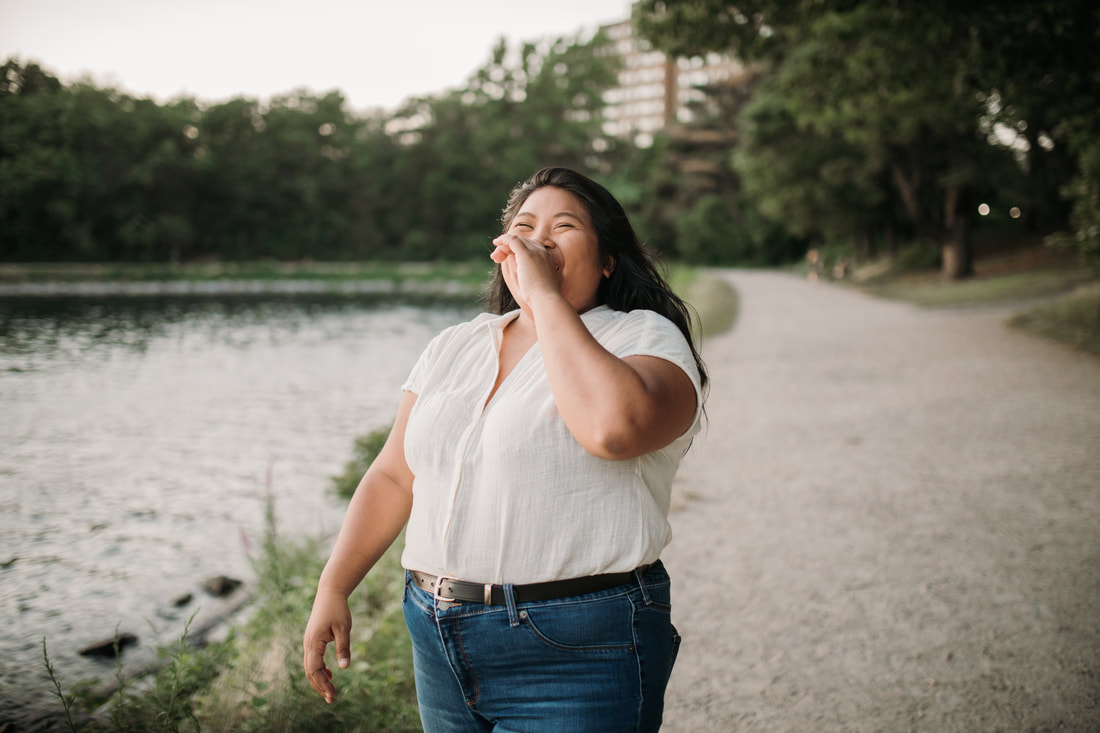|
The more you practice these skills, the more you find they can help.  Whether you’ve been to counselling before, or just researched ways to improve your mental health, you've probably heard that same list of ideas over and over again. Some of them even sound silly. You may be skeptical of their effectiveness, so you try it once and move on, or you don’t try it at all. However, the reason that you keep hearing the same suggestions is that they can actually work. No matter how weird you may feel trying it, the more you practice these skills, the more you find they can help. 1. Journaling. This is a common one that you’ll always hear. Write down how you feel, your thoughts, events in your day, anything. To many people, this may seem like a waste of time. Can’t I just think about it instead of writing it down? Writing out my thoughts and feelings would take time. Am I going to be judged on what I’m writing? By writing down your thoughts and emotions, it can help you process what is going through your head. You don’t have to show anybody if you don’t want to, so don’t worry too much about proper grammar, spelling, or content. The important part is clearing your head of information to make room for more. It can also help you identify different patterns, like things that may be causing you anxiety or making you feel sad. By taking the time to write, we take time to deliberately process our thoughts and emotions, instead of bottling them up inside. Writing is especially useful if you’re the kind of person that doesn’t like to talk to others. This way you can still express yourself and not hold in your emotions until you explode. 2. Meditation/Relaxation. This one takes practice. Usually, the first few times you try to relax and be mindful, you can’t stop thinking at all. This is normal. It takes practice to learn how to let your thoughts drift away and just focus on the present moment. While you may be tempted to give up after your first try, I urge you to keep practicing. Relaxation does not have to look like a formal yoga class. It can be hiding in the bathroom and focusing on your breathing. Or trying to gently focus your eyes on something in the room, really seeing all the details. Whatever type of relaxation you can fit into your life will help. Deep breathing helps to relax your body and mind. Even just sitting out in the sun, feeling the warmth on your skin and listening to the birds chirping will give your mind the mini vacation it needs to feel more relaxed and energized. So, before you give up, keep trying it! 3. Challenging Negative Thoughts. This one can be more difficult. You have to notice your thoughts, and determine if they are negative or irrational. If they are, instead of feeding into them and generating more anxiety or depression, challenge them. Look for evidence that supports the thought. Look for evidence that counters the thought. Often, you’ll find there is more evidence against the negative thought than for it. What are the chances of your thought actually being or becoming true? Even if your worst thought comes true (which most likely it won’t) will it still matter in one week, or one month, or one year? Challenging your negative thoughts can help you to “rewire” your brain into questioning these thoughts when they come into your mind instead of automatically believing them. The more you question negative thoughts, the less likely you are to believe them, and you will find you will begin to feel better about yourself, happier, and less anxious. 4. Positive Affirmations. This one I even feel silly doing I have to admit. Looking in the mirror and telling yourself positive statements every day hoping that you’ll eventually believe them. I was skeptical too. However, as silly as you may feel, this does work. The first few days are weird, and you’ll want to stop. But, if you keep practicing them and make it a daily habit, you’ll soon start to see that you begin to believe the affirmations and feel better about yourself. Try it for one month before giving up. It doesn’t take up too much time, so there are no excuses. Try it and see if you feel even a little bit better about yourself. One thing to remember is that positive affirmations don’t make good things happen; they simply make you more open to accepting good things. 5. Self-Care.
While this one may be obvious in how it can help, many of us still don’t make time for it. Setting aside time to take care of yourself, and making it a priority can help you relax and rejuvenate. If you were sick, you would relax and take care of yourself. Why not set aside time to do the same before even if you’re healthy? It can help improve your mental and physical health. Plus, it’s fun to do! No more excuses. Whatever self-care may look like to you (taking a bath, going for a walk, reading), set aside ten minutes a day or one hour a week, whatever you can, and you will feel a difference in your mind and body. |
|
OverviewNWO’s source for all things relationships, mental health, wellness, lifestyle, and pandemic support. Kelly Magazine is a mental health outreach initiative created by Kelly Mental Health and supported by Kelly Mental Health Foundation, a non-profit organization dedicated to improving the community in the area of mental health.
|
Magazine |
Follow Us |
In support of @kellymentalhealthfndn |
© COPYRIGHT. ALL RIGHTS RESERVED. WEB DESIGN BY KMH









